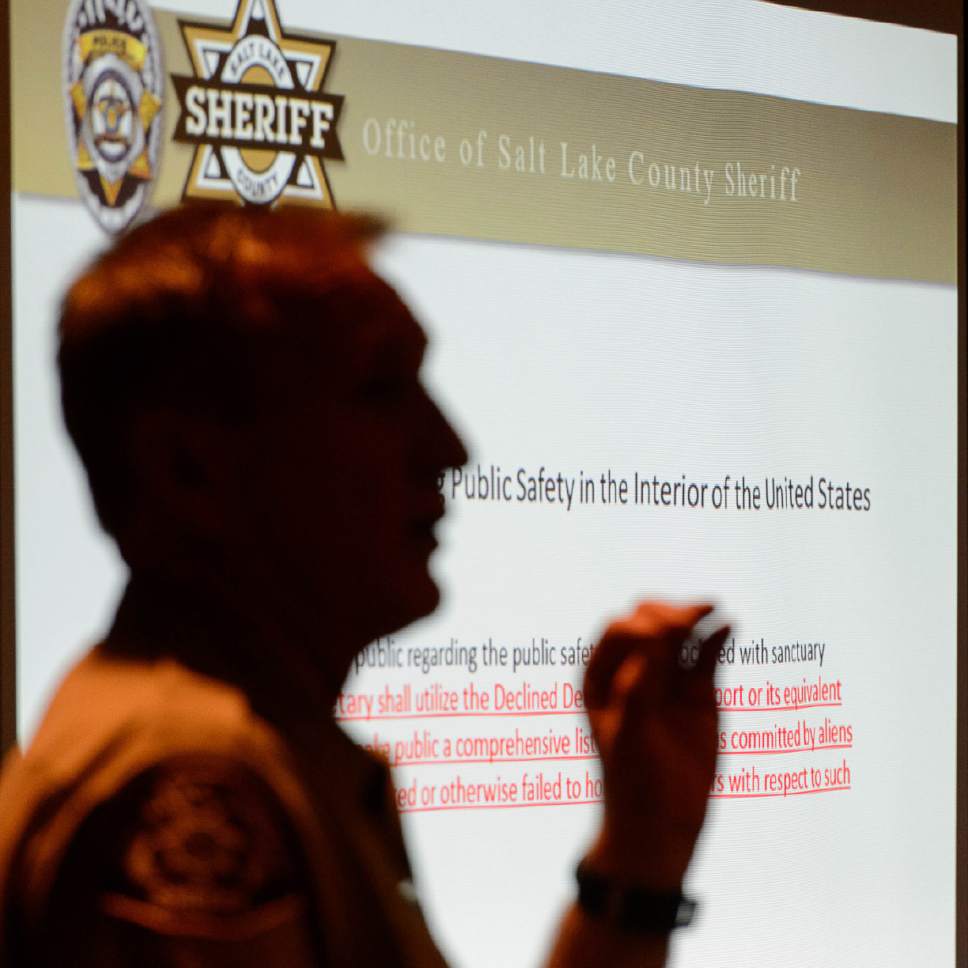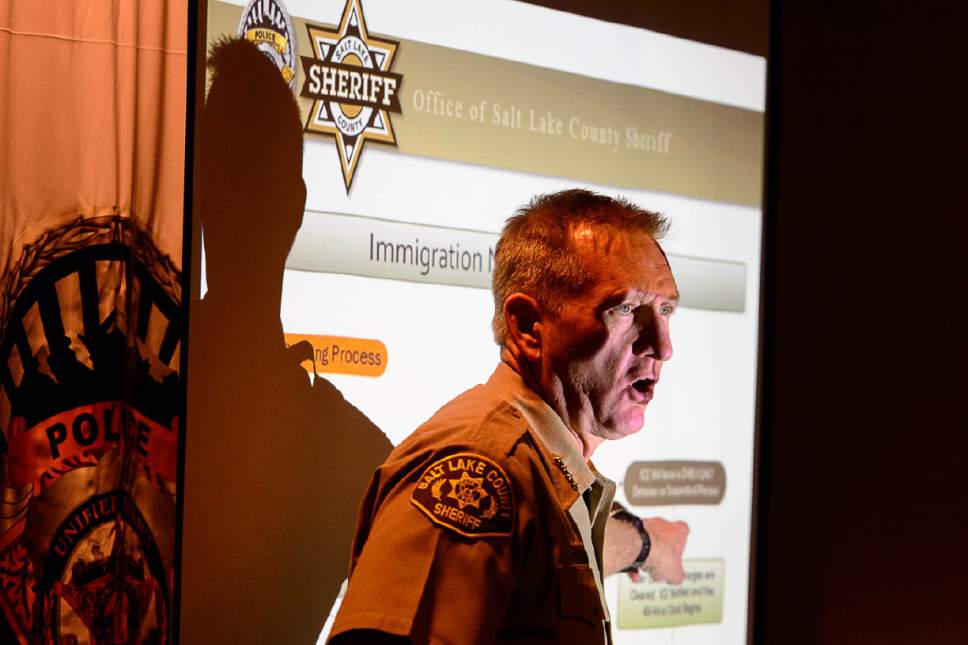This is an archived article that was published on sltrib.com in 2017, and information in the article may be outdated. It is provided only for personal research purposes and may not be reprinted.
President Donald Trump's recent executive order on immigration does not change policing in Utah — law enforcement officers are prohibited from seeking the immigration status of people they encounter.
That was the message from Salt Lake County Sheriff Jim Winder, who called a news conference Wednesday to assuage fears of immigrant residents and visitors who fear being pulled off the streets and out of their homes and deported.
"Over the past couple of days, I have received phone calls from a variety of groups who have concerns," Winder said. "I'm telling them, 'Don't worry, nothing has changed.' "
"The UPD (Unified Police Department) has changed nothing," the sheriff added.
Winder noted that there is "a lot of misinformation out there" in wake of last week's executive order temporarily banning immigration from seven Middle Eastern and African countries.
Recently, both Salt Lake City Mayor Jackie Biskupski and Salt Lake County Mayor Ben McAdams announced their support for immigrant residents and visitors, but explained their municipalities are not sanctuary cities.
Although there is no set definition for "sanctuary city," it is generally accepted that jurisdictions that fall into that category refuse to work with federal officials on immigration matters.
Winder said the Salt Lake County jail complies fully with federal law concerning immigration:
When an individual is booked into the county jail, local officials seek to determine their country of origin, the sheriff explained. If they identify themselves as foreign-born, their names are forwarded to immigration officials.
The federal department of Immigration and Customs Enforcement (ICE) can then request that an inmate be detained. If that occurs, the jail will hold them for 48 hours after all other charges are cleared, the sheriff said.
In 2016, law enforcement officials booked 29,185 people into the Salt Lake County jail. Of that number, 1,877 identified themselves as foreign born. ICE placed holds on 660 of them, the sheriff said. But only 149 were taken into federal custody.
If the U.S. Department of Justice determines that a county jail is not complying with immigration laws, federal funding can be withheld, Winder said. He pointed to San Francisco as a case in point.
San Francisco has filed suit against federal government over the policy.
In 2009, the Utah State Legislature directed law enforcement agencies to enforce federal immigration laws. Before that law could be implemented, however, such enforcement was found to be unconstitutional in an Arizona federal court case: It required its law enforcement officers to determine an individual's immigration status during a "lawful stop, detention, or arrest," when there was reasonable suspicion that the individual was an illegal immigrant.
"Those were scary times," Winder said. "You don't need to be scared now."













